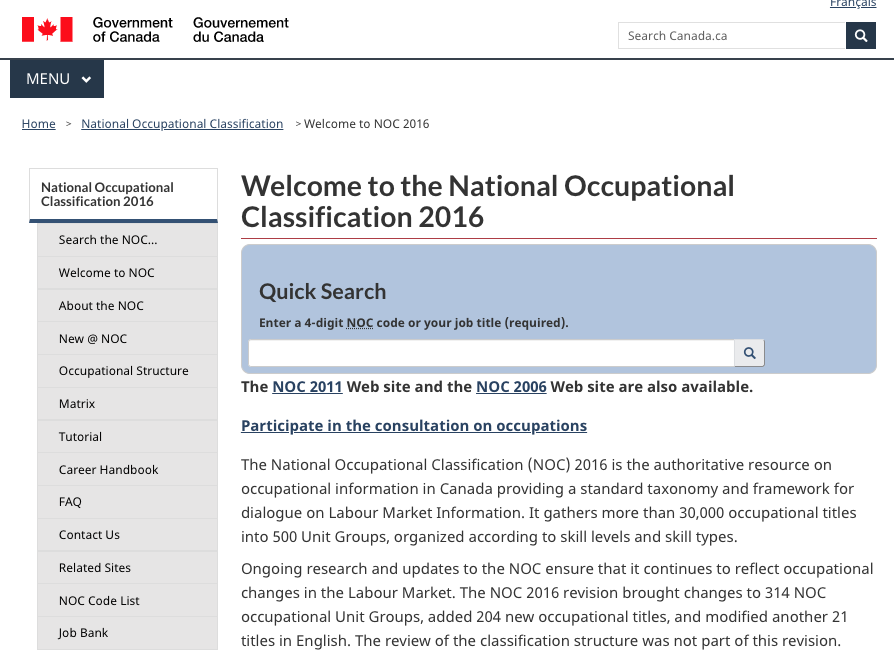National Occupation Classification Canada
> Archive > High Demand Occupations > National Occupation Classification
One of the features of the National Occupations Classification is its system of codes. The first two digits of each code convey meaning with respect to the group skill type and skill level category.
For all non management occupations, the first digit of each code identifies one of the nine skill type categories. Similarly, for all non management occupations, the second digit of each code identifies one of four skill level categories.
This applies to all occupations except management occupations. For management occupations, the first digit is 0 and the second digit represents the skill type categories, from 1 to 9.
When the first digit is... | ...the Skill Type Category is |
1 | Business, Finance and Administrative Occupations |
2 | Natural and Applied Sciences and Related Occupations |
3 | Health Occupations |
4 | Occupations in Social Science, Education, Government Service and Religion |
5 | Occupations in Art, Culture, Recreation and Sport |
6 | Sales and Service Occupations |
7 | Trades, Transport and Equipment Operators and Related Occupations |
8 | Occupations Unique to Primary Industry |
9 | Occupations Unique to Processing, Manufacturing and Utilities |
When the second digit is... | ...the Skill Type Category is |
1 | Skill Level A (Professional Occupations) |
2 or 3 | Skill Level B (Technical, Paraprofessional and Skilled Occupations) |
4 or 5 | Skill Level C (Intermediate Occupations) |
6 | Skill Level D (Laboring and Elemental Occupations) |
Education / Training | Other | |
| Skill Level A | University degree (bachelors, masters or postgraduate) | |
| Skill Level B | Two to three years of post secondary education at a community college, institute of technology or CEGEP Two to four years of apprenticeship training Three to four years of secondary school and more than two years of on the job training, training courses or specific work experience | Occupations with supervisory responsibilities are assigned to skill level B. Occupations with significant health and safety responsibilities (e.g., fire fighters, police officers and registered nursing assistants) are assigned to skill level B. |
| Skill Level C: | One to four years of secondary school education Up to two years of on the job training, training courses or specific work experience |
|
| Skill Level D: | Up to two years of secondary school and short work demonstration or on the job training |
|

